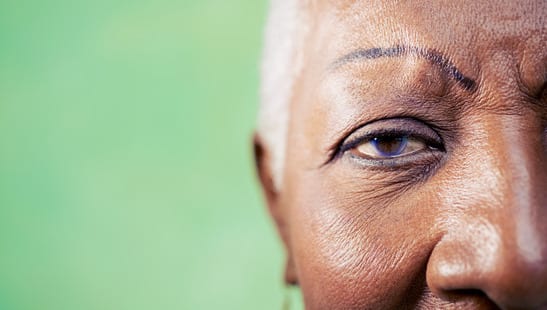 Yep, we’re all getting older. It’s not much fun to think about, but it’s better to be prepared when it comes to vision and eye health. It’s important to know the problems aging eyes might face, as well as the symptoms of these changes. Many people are unaware of the dangerous complications of untreated eye problems and what they can do to avoid or remedy them. Read on for an overview of how age affects our vision.
Yep, we’re all getting older. It’s not much fun to think about, but it’s better to be prepared when it comes to vision and eye health. It’s important to know the problems aging eyes might face, as well as the symptoms of these changes. Many people are unaware of the dangerous complications of untreated eye problems and what they can do to avoid or remedy them. Read on for an overview of how age affects our vision.
CHANGES
We rely on vision a lot, so gradual changes may not be noticed. Pay special attention to any of these changes in your vision:
- Small print is harder to read,
- Takes longer to adjust to from bright to dark,
- Glare sensitivity,
- Difficulty judging distances,
- Colours and contrast seem muted,
- Dry, teary or watery eyes.
SYMPTOMS
You may be experiencing these changes without fully being aware of them. Take note of any of these symptoms:
- Excessive squinting (especially in bright light),
- Preference for bright objects or clothes,
- Clumsiness in everyday activities (eating, buttoning a shirt, etc.),
- Difficulty copying down text,
- Movement or light in corners of eyes,
- Night-driving seems harder,
- Involuntary eye twitches,
- Missing signs or lights while driving,
- Increase in trips and stumbles.
DISEASES & CONDITIONS
Cataracts: Butting of the eye’s lens, limiting light. Effectively causes blindness, but can be successfully treated with a common surgery that is considered very safe.
Floaters: Spots or specks that seem to float across your vision. Very common, but changes or worsening of floaters can indicate eye disease.
Glaucoma: Damage to nerves within the eye that can cause blindness. It has few early symptoms, so an important reason for regular eye exams.
Macular degeneration: Damage or wearing down in the center of the retina. Causes permanent loss of the center of vision. Can be treated but requires regular exams to catch it early enough.
PREVENTION
Here are few simple guidelines to help preserve your vision and eye health as you get older:
- Regular eye exams after age 45,
- Treat dry, itchy eyes with drops and a home humidifier,
- Watery eyes should be examined by a doctor, but safety or sunglasses may help,
- Keep your home and workplace well lit,
- Do not smoke or quit if you do,
- Reduce glare with lampshades, filters for electronic screens and UV-blocking sunglasses,
- Always use safety glasses when doing dirty or dangerous work,
- Avoid eye injuries from chemicals or hot liquids,
- Eat healthy (many vitamins found in carrots, kale, citrus, etc. can help prevent or slow eye disease).
Regular eye exams are essential as our eyes age. Make sure to visit your optometrist for regular eye exams to prevent and treat the symptoms of aging eyesight.
